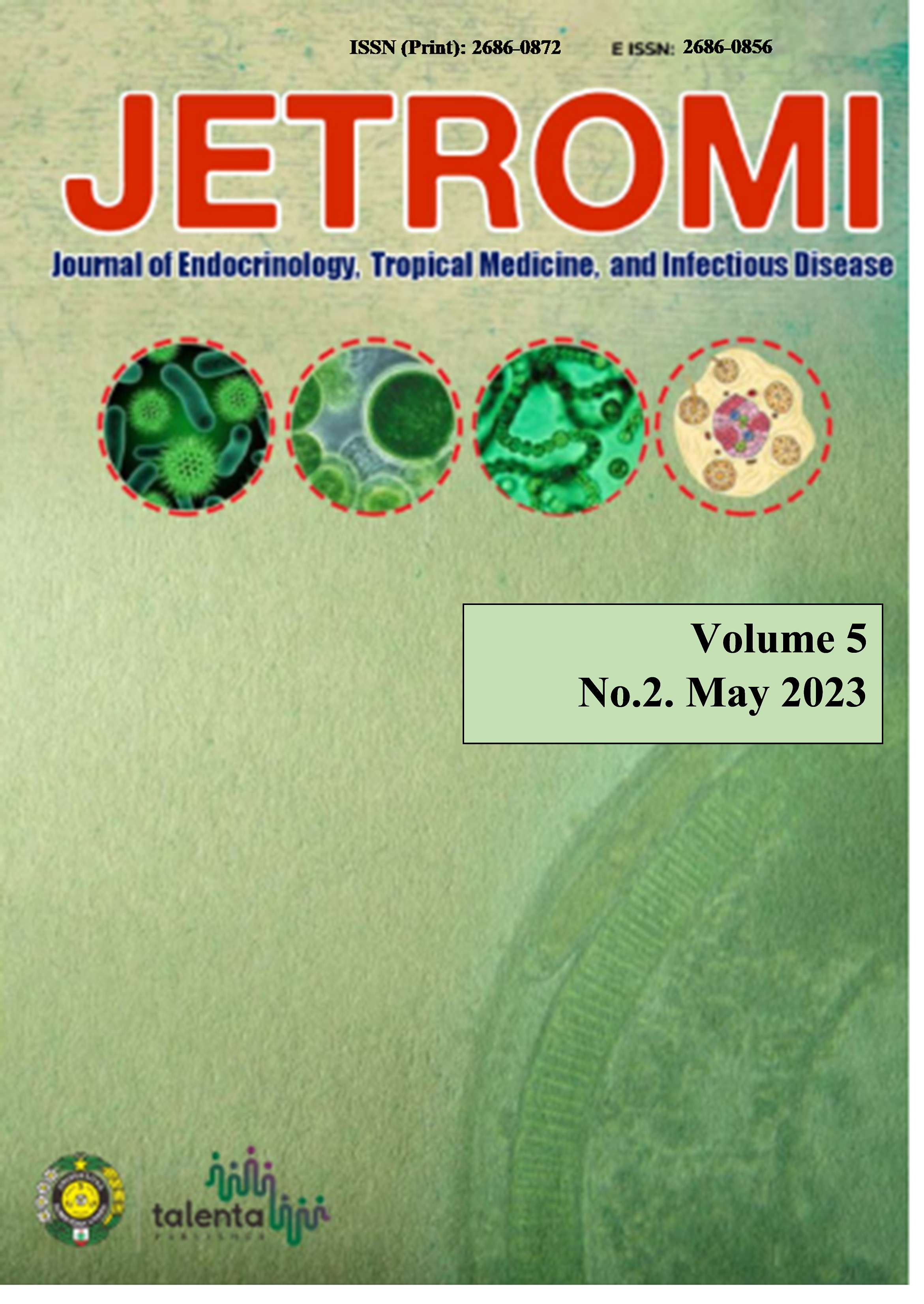Correlation between Low-Density Lipoprotein Cholesterol and Certain Lipid Profiles in The Treatment of Bay Leaf Extract (Syzgium Polyanthum (Wight) Walp) to Dyslipidemia Patients
DOI:
https://doi.org/10.32734/jetromi.v5i2.12244Keywords:
LDL-C, Bay Leaf Extract (Syzgium Polyanthum (Wight) Walp)Abstract
Background: The use of herbal medicine has long been practiced throughout the world, and the production and processing of herbal medicines are constantly being improved to treat various diseases. The aim of this study was to assess the correlation between low density lipoprotein cholesterol and certain lipid profiles in the treatment of bay leaf extract (syzgium polyanthum (wight) walp) to dyslipidemia patients.
Method: We recruit dyslipidemia patients, and the search project was given an explanation and asked to give written consent (informed consent) to participate in the research. Then anamnes is carried out and examination:measurement of BMI, measurement of weist circumference, after being satisfied for 10-12 hours, the patient then took blood samples by the laboratory, to examine hs-CRP levels, lipid profiles (total cholesterol, LDL cholesterol, HDL cholesterol and triglycerides), routine blood, kidney function (ureum, creatinine). Blood samples is taken before and after 30 days study. Bay leaf extract 150 mg is taken two times perday .
Result: Subjects who participate of the study were 15 peoples as a treatment group and ages 47.47±11,507 years old. There is signifikant differences in cholesterol total, LDL-C and Apo=B (all, p < 0,01). There is a correlation between LDL-C and Total Cholesrerol, Triglyceride, FPG and Apo-B (all, p < 0.05).
Conclusion: In this study, bay leaf administration 2x150 mg for 30 days, improved lipid profiles of total cholesterol, LDL, and ApoB in dyslipidemic patients. Bay leaf extract administration has the potential to prevent and improve cardiovascular disease in dyslipidemic patients
Downloads
Downloads
Published
Issue
Section
License
Copyright (c) 2023 Journal of Endocrinology, Tropical Medicine, and Infectious Disease (JETROMI)

This work is licensed under a Creative Commons Attribution-NonCommercial-ShareAlike 4.0 International License.
The Authors submitting a manuscript do so on the understanding that if accepted for publication, copyright of the article shall be assigned to Journal of Endocrinology, Tropical Medicine and Infectious Diseases (JETROMI).
Copyright encompasses exclusive rights to reproduce and deliver the article in all form and media. The reproduction of any part of this journal, its storage in databases and its transmission by any form or media, will be allowed only with a written permission from Journal of Endocrinology, Tropical Medicine and Infectious Diseases (JETROMI).








